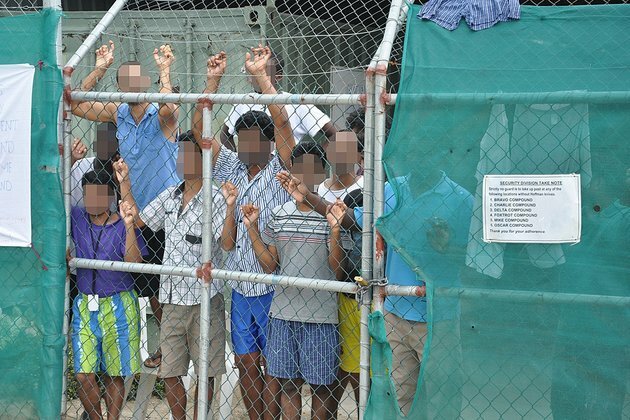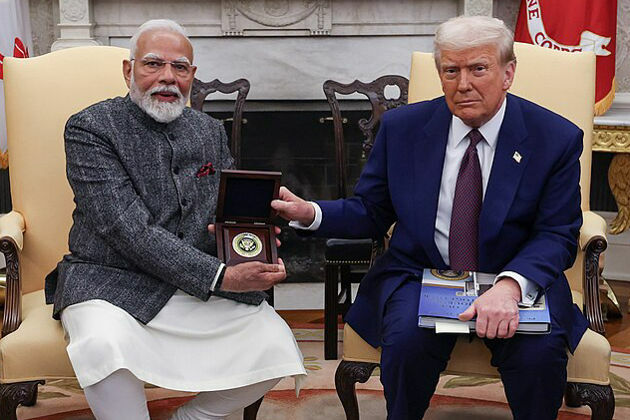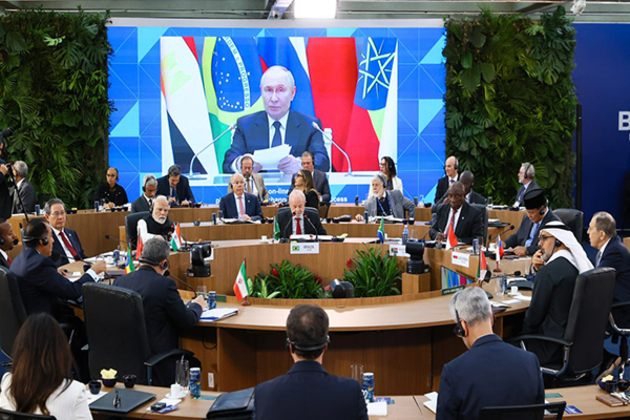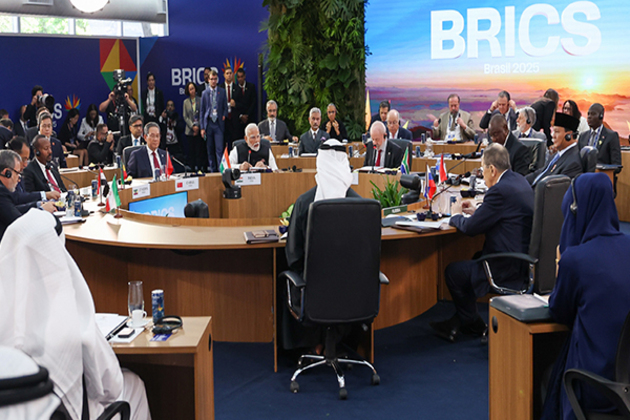Australia's asylum seeker policy history: a story of blunders and shame
The Conversation
13 Jun 2019, 05:47 GMT+10

This article was developed from a series of interviews with politicians, officials and other key players, including former Immigration minister Chris Evans and former Victorian premier Steve Bracks. Others preferred to remain anonymous.
We know very little about the kind of government Scott Morrison runs. After beating Peter Dutton and Julie Bishop to the prime ministership in August last year, most commentators assumed Morrison was keeping the chair warm until Labor's Bill Shorten won the 2019 election.
Following the Coalition's unexpected victory, it's time to ask more searching questions, not only about Scott Morrison's political values and policy aspirations, but about his prime ministerial style.
Recent history suggests processes of policy decision-making can make or break governments.
Read more: Cruel, and no deterrent: why Australia's policy on asylum seekers must change
Labor's shambolic attempts to create asylum seeker policy during the Rudd-Gillard years are emblematic of the dire consequences when tried-and-tested processes of policy advice fail.
In the face of internal dissent, thousands of asylum seekers arriving by boat and a marauding opposition leader, the government rejected its most vital source of advice, the public service.
It began in 2009
In mid-October 2009, Prime Minister Kevin Rudd was informed that a vessel carrying 78 Sri Lankan asylum seekers was in danger of sinking in Indonesian waters. Rudd negotiated directly with the Indonesian president Susilo Bambang Yudhoyono and decided to dispatch a Customs vessel, the Oceanic Viking, to rescue the asylum seekers and return them to Indonesia.
The then immigration minister Chris Evans first heard of the plan when he received a phone call from Rudd's chief of staff, Alister Jordan.
Jordan was not consulting the immigration minister, but rather informing him of a plan that had been enacted. Evans rang his departmental secretary, Andrew Metcalfe, who told him the plan would not work because the asylum seekers would refuse to disembark.
As Metcalfe had foreseen, the asylum seekers refused to leave the Australian boat at Bintan. Australian voice surveillance revealed there was talk of mass suicide.
Read more: How the next Australian government can balance security and compassion for asylum seekers
The standoff lasted four weeks, until a deal was struck that saw the Sri Lankans resettled in countries including New Zealand.
Officials in the Immigration Department were dumbfounded. One told me:
The boats kept coming. There were 6,555 boat arrivals in 2010. On the night he lost the prime ministership to Julia Gillard, Rudd told the Labor caucus that if he won the leadership vote, he would "not be lurching to the right on question of asylum seekers".
What Rudd didn't mention was that the government had been actively exploring offshore options for some time.
The Immigration Department had prepared a list of possible sites for offshore detention that included Malaysia, Pakistan, Thailand, Indonesia, and East Timor.
Sounding out the East Timorese government
Evans was focused on pursuing a multilateral solution. His officials consulted with members of the refugee lobby, including the prominent lawyer David Manne, about being part of a broader regional arrangement that had the approval of the United Nations High Commissioner for Refugees (UNHCR).
Evans and his department worked on an offshore deal that would meet with the approval of Australian stakeholders, neighbouring countries, and the UNHCR. But meanwhile, a small group of ministers focused on East Timor.
Read more: A refugee law expert on a week of 'reckless' rhetoric and a new way to process asylum seeker claims
The former Victorian premier, Steve Bracks, was approached at an airport and asked to sound out the East Timorese government about a processing centre. Bracks reported back that Prime Minister Xanana Gusmao was interested, but he would need some time to win support within his government.
Gusmao wanted negotiations to be done through the president, Jose Ramos Horta. This process was in train when Kevin Rudd was overthrown as prime minister on June 24, 2010.
In a speech to the Lowy Institute on July 5, the new prime minister, Gillard, announced she had discussed with Horta the possibility of establishing a regional processing centre in East Timor. But in going public, she had pre-empted the internal East Timorese process. Gusmao distanced himself from the plan and it quickly fizzled.
Meanwhile, the public servants who had been working on the multilateral solution were left scratching their heads. One official told me:
Failed Malaysia initiative
After the 2010 election, the new immigration minister Chris Bowen secured an offshore processing arrangement with Malaysia. Immigration Department officials had encouraged Bowen to bring refugee stakeholders and the UNCHR on board.
Read more: Refugees are integrating just fine in regional Australia
But Bowen, who was facing immense political pressure from opposition leader Tony Abbott, preferred to deal unilaterally with his Malaysian counterpart, Hishamuddin Hussein, with whom he had developed a strong rapport.
Hours before the first 16 asylum seekers were due to be transported to Malaysia, Manne obtained an injunction against their removal from Australia, pending a challenge to the legality of the government's agreement with Malaysia.
In September 2011, the High Court decided in a six-to-one decision that the Malaysia agreement contravened the Migration Act because the refugees would not be given the protection required by the Australian legislation.
According to a key player, the High Court ruling was the product of a profound failure of process:
Read more: Robert Manne: How we came to be so cruel to asylum seekers
After the failure of the Malaysia initiative, the Gillard government hurriedly reopened the Nauru and Manus Island processing centres.
When Rudd replaced Gillard in June 2013, he announced that no one who arrived by boat would ever be settled in Australia. The boats slowed, but it was the institution of boat turnbacks under the Abbott government's Operation Sovereign Borders that stopped them altogether.
The consequences of the Rudd and Gillard governments' blundered handling of asylum seeker policy were considerable. Indonesia and East Timor were unnecessarily offended, the government's political fortunes suffered and, most significantly, asylum seekers were again subjected to processing on Nauru and Manus Island.
Read more: In Manus, theatre delivers home truths that can't be dodged
It is conceivable that Manus and Nauru would have remained closed and Operation Sovereign Borders rendered unnecessary had the Rudd and Gillard governments heeded the advice of the Immigration Department to bring key refugee stakeholders and UNHCR on board into the process.
The institution of rigorous decision-making processes will not guarantee Scott Morrison's success, but they could help him avoid many of the pitfalls that contributed to the downfall of the Rudd and Gillard governments.
Carolyn Holbrook is presenting a talk on this topic at the Australian Policy and History 'History and the Hill' Conference at Deakin University on Thursday, June 13
Author: Carolyn Holbrook - ARC DECRA Fellow at Deakin University, Deakin University 
 Share
Share
 Tweet
Tweet
 Share
Share
 Flip
Flip
 Email
Email
Watch latest videos
Subscribe and Follow
Get a daily dose of Asia Pacific Star news through our daily email, its complimentary and keeps you fully up to date with world and business news as well.
News RELEASES
Publish news of your business, community or sports group, personnel appointments, major event and more by submitting a news release to Asia Pacific Star.
More InformationAsia
SectionTrump signals progress on India Trade, criticizes Japan stance
WASHINGTON, D.C.: President Donald Trump says the United States could soon reach a trade deal with India. He believes this deal would...
Dalai Lama to address Buddhist conference, reveal succession plan
DHARAMSHALA, India: The Dalai Lama is set to address a significant three-day conference of Buddhist leaders this week, coinciding with...
UN Demands End to Myanmar Violence as Junta’s Election Plans Risk Further Instability
Nearly three months after a devastating earthquake struck Myanmar, the country remains trapped in a deepening crisis, compounded by...
"Perception of technique, people changes after every match, series...": Gill following historic Birmingham masterclass
Birmingham [UK], July 7 (ANI): Following a historic outing with the bat at Birmingham, Indian skipper Shubman Gill reflected on changes...
BRICS calls for urgent UNSC reform, reiterate support for India, Brazil to play greater role in UN
Rio de Janeiro [Brazil], July 7 (ANI): Leaders of BRICS nations reiterated support for 'comprehensive reform' of the United Nations,...
Condemning terrorism should be our 'principle', not just 'convenience': PM Modi at BRICS summit
Rio de Janeiro [Brazil], July 6 (ANI): Prime Minister Narendra Modi, during the 17th BRICS Summit on Sunday, asserted that condemning...
Business
SectionRussia among 4 systemic risk countries for Italian banks
MILAN, Italy: Italian regulators have flagged four non-EU countries—including Russia—as carrying systemic financial risk for domestic...
US debt limit raised, but spending bill fuels fiscal concerns
NEW YORK CITY, New York: With just weeks to spare before a potential government default, U.S. lawmakers passed a sweeping tax and spending...
Shein hit with 40 million euro fine in France over deceptive discounts
PARIS, France: Fast-fashion giant Shein has been fined 40 million euros by France's antitrust authority over deceptive discount practices...
Meta hires SSI CEO Gross as AI race intensifies among tech giants
PALO ALTO/TEL AVIV: The battle for top AI talent has claimed another high-profile casualty—this time at Safe Superintelligence (SSI),...
Engine defect prompts Nissan to recall over 443,000 vehicles
FRANKLIN, Tennessee: Hundreds of thousands of Nissan and Infiniti vehicles are being recalled across the United States due to a potential...
Microsoft trims jobs to manage soaring AI infrastructure costs
REDMOND, Washington: Microsoft is the latest tech giant to announce significant job cuts, as the financial strain of building next-generation...













